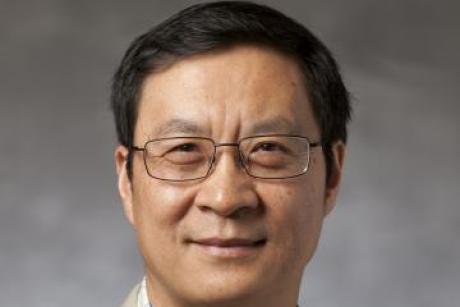Note: Each summer, nearly 100 Duke students spread out to more than a dozen countries to participate in global health field experiences, which help them understand the local context of global health challenges. This includes all students in DGHI’s Master of Science in Global Health program, who typically spend 10 weeks in the field to conduct research for their masters’ thesis. Joan Kimani, an MS-GH student who is doing her thesis research in Kenya, is catching up with a few of her classmates to see how their summers are going.
After growing up in various parts of Asia, including the Philippines, Aparnaa Velayudhan has always felt a strong connection to the region. When it came time for her to choose where to do her thesis research, she followed her heart.
“I had been traveling to Singapore for most of my childhood, and I hope to contribute to work in that area in the future,” says Velayudhan, a student in DGHI’s Master of Science in Global Health program.
This summer, Velayudhan is working with Singapore’s KK Women's and Children's Hospital (KKH) on a research project exploring the links between food insecurity and childhood obesity. “Many people are unaware that food insecurity can lead to obesity due to reliance on unhealthy diets,” Velayudhan says. Families affected by food insecurity often turn to foods high in carbohydrates, which are cheap but nutritionally inadequate, she explains.
“The aim is to inform healthcare providers about the extent of food insecurity and its potential link to obesity, allowing them to redirect children to resources that provide healthy foods and improve their quality of life,” she says.

DGHI master's student Aparnaa...
Velayudhan says it has been difficult encouraging people to share their experiences with food insecurity. She has relied on her background as a medical doctor to help build trust and rapport with participants. “Getting people to open up about their struggles was challenging, but my medical background helped me make them comfortable,” she says.
The most rewarding parts of the project have been the active engagement with patients and learning from healthcare professionals in Singapore. “Seeing the different approaches to medicine and the excellent resources at KKH have been enlightening,” she says.
Velayudhan was invited to present her research at the Singapore Malaysia Congress of Medicine, where she won the silver prize for her poster presentation. She competed against doctors, researchers and medical students to earn the honor, filling her with confidence for her future. She hopes to pursue research opportunities in Asia after completing her master’s degree.
“This experience has shown me the vast opportunities available in global health, and I am excited about what the future holds,” she says.
Velayudhan has also appreciated the tropical rain and climate in Singapore, reminiscent of her childhood. “I love the warm weather and the diverse culture here, with people from all over Asia and the world,” she says.
Based on her own positive experience, Velayudhan encourages future global health students to embrace global research opportunities without hesitation.
“Go for it with an open mind,” she says. “The learning opportunities and experiences are invaluable.”



